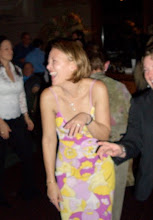Easter Island, the debut novel by Jennifer Vanderbes, is a well written and impeccably researched book that tells the parallel stories of two women who came to the island in question 60 years apart. Elsa Beazley, a young bride and the primary caregiver for her younger sister Alice, arrives in 1913 with her sister and her much older husband. Beazley is an anthropologist sent to study the island's giant moai statues, and Elsa herself becomes engrossed by the island and its mysteries. In 1973, biologist Greer Farraday goes on her own to understand the island's history through the study of centuries of pollen. The two women come to terms with personal betrayals, study the island's people, culture and history, and try to solve the mystery of whatever happened there.
Greer's story is particularly compelling. This is her first solo research project, something conceived when she was working as a member of her better-known scientist/late husband's lab team. Her work on Easter Island is largely conducted alone, giving her ample time to reflect on her disastrous marriage. This provides great insight into gender inequities of the '60s and '70s, and helps to make Greer both the most complete and the most sympathetic character in the book.
Elsa, Alice and Beazley arrive on Easter Island with the knowledge that they will be there for years, perhaps longer. They set up a camp and a research station. Elsa proves adept with languages and quickly becomes their primary translator and emissary to the native people. Before long, she discovers the mysterious rongorongo, wooden tablets covered in a sort of heiroglyphic picture-language. The language has long since been forgotten by all but the oldest natives, and she sets out to translate the tablets.
A third story is interwoven with these, that of the German WWI Admiral Graf von Spee, whose connection to Elsa seemed just a little too neat and tidy. The only other note I'd make is that this book is cram packed with scientific and historical data and explanation, which I found fascinating, but I suppose could drag a bit.
All in all, this is an extremely solid first novel, and I'm happy to have read it. I will definitely be reading Vanderbes's second novel, Strangers at the Feast, before long. It's worth mentioning again that Vanderbes is a college friend of mine, so... "Kudos to you, Jen - I'm totally impressed!"
Next up: Mansfield Park by Jane Austen.
Thursday, November 18, 2010
Easter Island
Labels:
book club,
literature
Subscribe to:
Post Comments (Atom)


No comments:
Post a Comment